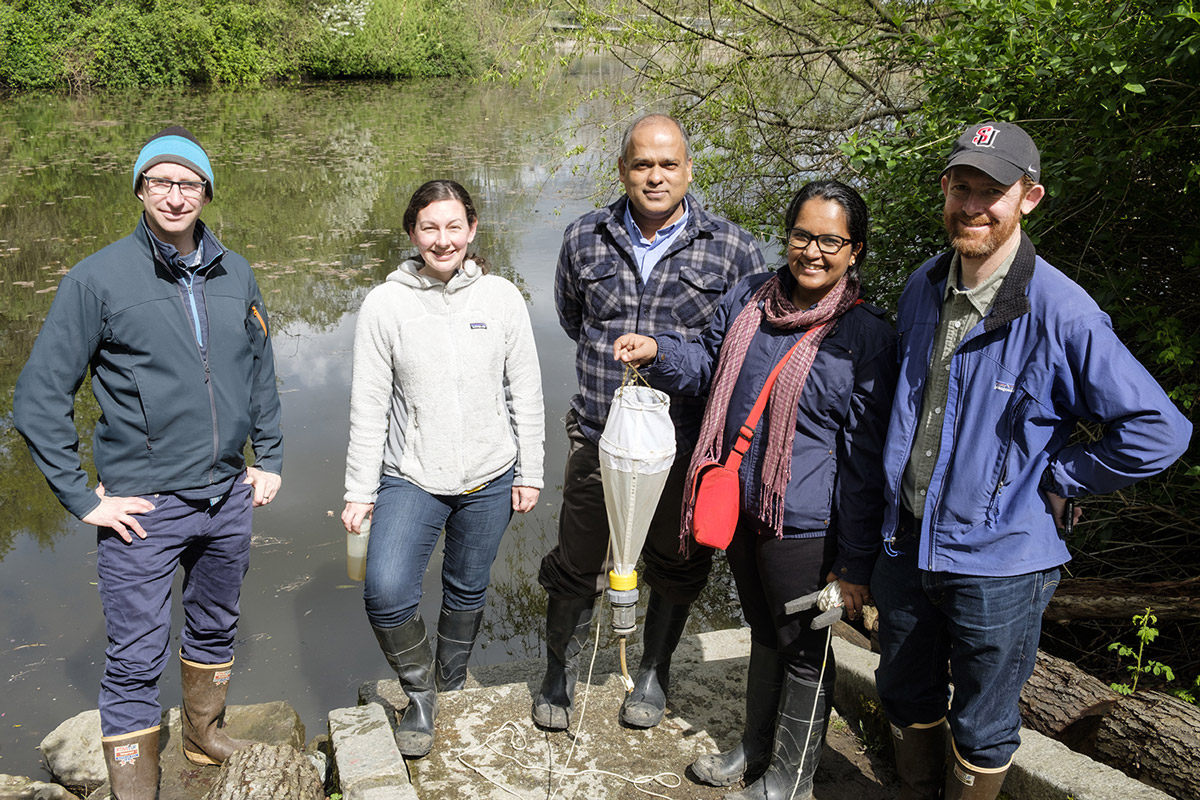

Carolyn Stenbak, Lindsay Whitlow, and Michael Zanis
Faculty
College of Science and Engineering
Lake Research Has Broad Impact
What began as a student’s hypothesis—whether a naturally occurring virus could help control polluting algae blooms in freshwater lakes worldwide—has become an ongoing research project involving three College of Science and Engineering (CSE) professors and their students. What’s more, there’s now potential to collaborate with Seattle U’s Jesuit college partner in India.
The CSE professors working together on this project bring complementary specialties. Professor Carolyn Stenbak, PhD, specializes in viruses and immunology. Associate Professor Lindsay Whitlow, PhD, specializes in ecology. Assistant Professor Michael Zanis, PhD, specializes in botany, genomics and bioinformatics.
Since 2013, the trio has mentored CSE students who gather evidence during a summer research project to further the hypothesis. Lessons gleaned are then carried through each of the professor’s classes for the benefit of all their students. The student whose hypothesis initiated the project graduated in 2017 and landed a job with the National Oceanic Atmospheric Administration (NOAA) – National Marine Fisheries Service.
Seattle U’s new partnership with St. Joseph’s College in Bangalore, India, has opened up the possibility of expanding the lake research internationally. During a St. Joseph’s delegation visit to SU’s campus in fall 2017, Stenbak, Whitlow and Zanis taught their research methods to their St. Joseph counterparts.
“At SU and St. Joseph’s, research is centered on the student experience,” Stenbak says. “We’re doing global, collaborative research that addresses critical urban health issues while providing students with the technical skills and cultural awareness to prepare them for the scientific careers of the future.”